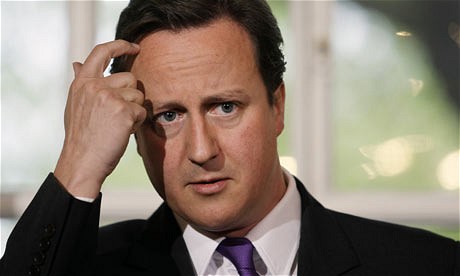On Wednesday April, 25, estimates were released suggesting that the British economy was slipping back into a recession due to two successive quarters of negative economic growth. On the same day, Rupert Murdoch gave testimony to the Leveson Inquiry in London. There he faced questions about News Corporation’s involvement in the tabloid phone-hacking scandal and his interactions with the British government as he was building up his media empire and influence in the UK. So guess which story led on the majority of newspaper front pages in Britain?
Apart from Murdoch’s own national tabloid, The Sun (the best-selling paper in Britain), nearly every newspaper featured the questioning of Rupert Murdoch as the lead story on their front page. Even The Times, Murdoch’s more-highbrow paper, carried the story. It did, however, make it clear that its owner should not be castigated for his conduct under the headline “I’ve never asked a prime minister for anything”. Only The Guardian and The Independentgave serious column inches to reporting the double-dip recession in the UK, although both of their stories were overshadowed by lead articles and photos about the Leveson Inquiry.
There are many theories as to why the British media has gone to town on coverage of the Leveson Inquiry. First, it allows them to report on their specialist subject: themselves. It also offers rival papers and news organizations the opportunity to attack – and toast the perceived demise of – the Murdoch empire they have hated for decades. Furthermore, it involves scandals, allegations and celebrities, all of which the media always love to cover. However, on the day it was announced that the British economy continued to contract and, in effect, the austerity measures implemented by the government were not bringing the country out of recession, perhaps they did not have their priorities right?
The Leveson Inquiry is an entertaining spectacle, no doubt. Even before Wendy Deng protected her husband against a pie-throwing protestor as he gave evidence to a British parliamentary committee, the story had more drama and intrigue than most stories featured in the press. The added vitriol with which many news outlets have chosen to report it, and the holier-than-thou attitude of some commentators who suggested the scandal is limited to News Corp alone, have given the media added incentive to act as if it is the most important event of any day. Many news organizations—from their journalists and reporters on up—have spent decades searching for the tangible evidence that Rupert Murdoch is ruining their industry. And with the phone-hacking scandal, they may just have found it.
However, the story affects the daily lives of very few people in the UK in a tangible way. In contrast, in a country with an 8.3% unemployment rate (down from a record high of 8.4% in the last quarter) and with a government that is slashing social programs while reducing the tax rate for the richest members of society, a return to a recession will cause further economic hardship for millions of working people across the country. But for the journalists and editors who determine what is featured on their newspaper’s front-page, this appears to be an afterthought. Either they believe that reports on the Leveson Inquiry will sell more papers or they truly believe that it is a more important issue for the British people than the new period of recession that is predicted for the UK. One is a sad indictment of the British audience, the other would be a worrying trend among the people with the power to control the news agenda.
I am reluctant to believe that the British newspaper-buying public would be put off by talk of the economic issues that affect their everyday lives, or that the newspapers have already provided all the pertinent information to their audience. Readers who are still left purchasing papers are probably entrenched enough in their buying habit to be little swung by the focus of their front pages. But if this means that news organizations are choosing to report on the issues that affect themselves more than the public then there will be less incentive for governments, parties and politicians—those who can act to tackle these problems—to focus their debate on the real issues that affect the people of Britain.
Established in 1995, the Georgetown Public Policy Review is the McCourt School of Public Policy’s nonpartisan, graduate student-run publication. Our mission is to provide an outlet for innovative new thinkers and established policymakers to offer perspectives on the politics and policies that shape our nation and our world.
